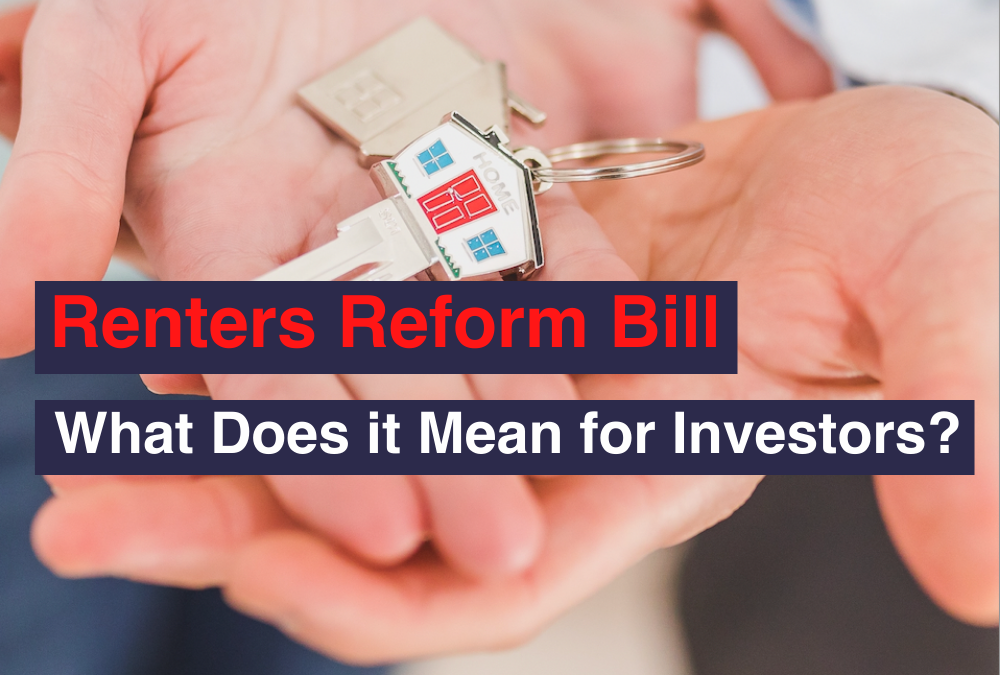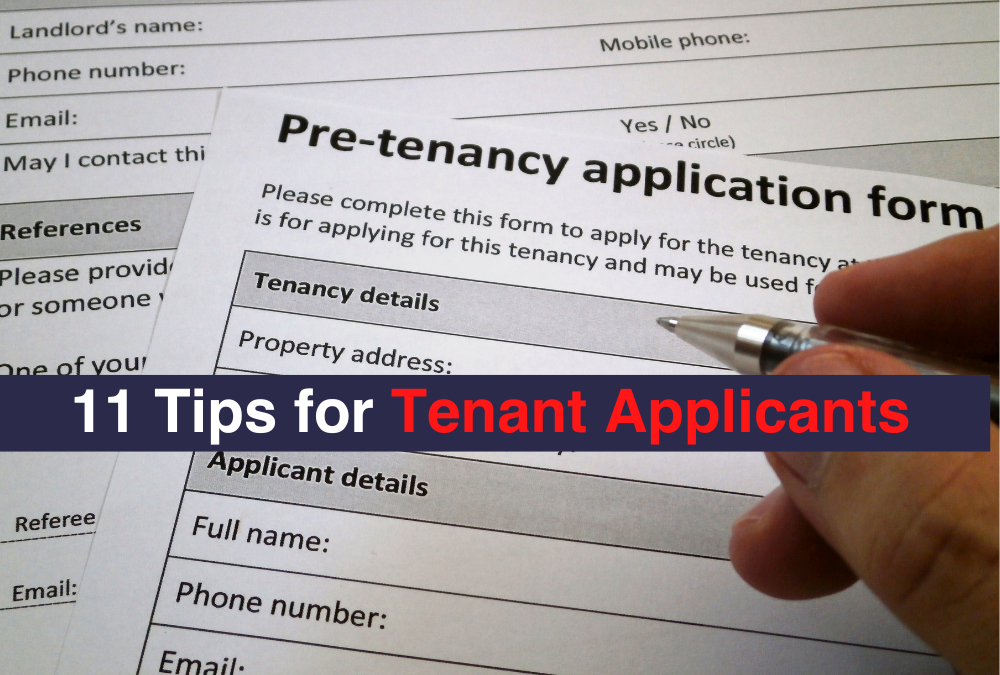The Government finally released the Renters Reform Bill a couple of weeks ago, after years of delay and much speculation. We examine the key points of the bill to see what this means for our current landlords and new investors.
What is Included in the Renters Reform Bill?
Decent Homes Standards
The Decent Homes Standards is already in place for social housing, but the Government plans to extend it to the private rental sector.
For a property to be labelled a decent home under the standard it must meet certain criteria, with the focus being on the health and wellbeing of the tenants.
The standard is being extended to ensure that all tenants live in safe, comfortable homes of good quality.
Section 21 No Fault Evictions Ban
Section 21 evictions currently allow landlords to end tenancies without giving any reason and will soon be outlawed.
This means landlords will need to rely on section 8 notices in order to evict tenants in the future. They will also need to cite one of the Section 8 ‘valid’ reasons in order to gain possession of their property.
Currently a valid reason would include;
- If the tenant is in rent arrears
- If the tenant has caused damage to the property
- If the tenant is causing a nuisance to neighbours
We recommend that landlords not be overly alarmed right now though, as the Renters Reform Bill does propose to keep some mandatory grounds for possession in place. This will include if a landlord wants to sell or live in their property.
The Renters Reform Bill white paper states:
‘We will introduce a new ground for landlords who wish to sell their property, and allow landlords or their close family members to move into a rental property’
‘We will introduce a new mandatory ground for repeated serious arrears’
‘Eviction will be mandatory where a tenant has been in at least two months’ rent arrears three times within the previous three years, regardless of the arrears balance at hearing’
We will be watching to see if these mandatory grounds do, indeed, make the final Act.
Rent Increases
The Bill will end the use of arbitrary rent review clauses within tenancy agreements, and improve the ability of tenants to challenge excessive rent increases.
The aim is to restrict landlords from imposing unjustifiable rent hikes.
It will also enable tenants to take their landlord to court for repayment of rent if their property is of an unacceptable standard, e.g., has a serious damp problem or ongoing issues with heating.
The Government will also double the notice periods for rent increases and give tenants stronger powers to challenge them if unjustified.
One of our Lettings Manager Shelley Theaker, says that “It’s worth remembering that there is already a right to challenge unfair clauses in Tenancy Agreements and that, in practice, rent reviews tend to be done in line with a new tenancy. Additionally, most of our landlords with long standing tenancies don’t increase the rent automatically every year. They are more likely to wait a little longer before reviewing the market as it’s important to have happy long term tenants looking after the property. We can’t see this new rule making much of a difference to how we operate already”
Private Renters Ombudsman
This will be created to enable disputes between private renters and landlords to be settled quickly, at low cost, outside the existing court system, which is hugely clogged up.
It will also ensure landlords can gain possession of their properties efficiently from anti-social tenants and be able to sell their properties when they need to.
This move is welcomed by all landlords who have found the court system to be slow and costly.
Property Portal
A new digital property portal will be implemented to work as a trusted one-stop-shop for guidance on renting in the private rented sector.
It is intended to provide tenants with transparency on the standard of the property they are renting and give councils more visibility when serious issues arise.
Blanket Bans on Tenants
It will become illegal for landlords to have blanket bans on renting to families with children or those in receipt of benefits.
At Horizon Lets we believe that it is only right that families with children or those in receipt of benefits are not discriminated against, but we also think that the benefits system needs to be improved at the same time.
Our Lettings Manager Samantha notes: “We would also like to see direct payments to landlords from Universal Credit from the word go, without having to wait until a tenant is seriously in arrears. It will make a big difference to private landlords when assessing whether a potential tenant can afford and be reliable with the monthly rent payments.”
Requests for Pets
Many tenants now looking for rental properties are pet owners, yet very few landlords are open to the idea of renting to them.
The new proposal will mean tenants have a right to request a pet in the property, and landlords will not be able to unreasonably refuse them.
At Horizon Lets we already encourage landlords with suitable properties to consider letting to responsible pet owners. Such tenants are very likely to want to stay in a property for the longer term and make it their home.
All Renters to be Moved Onto Periodic Tenancies
The Government is planning for all tenants to be moved onto a single system of periodic tenancies.
This will mean renters can leave sub-par housing without being held liable for the rent. They will also be able to move more easily if and when their circumstances change.
In effect, a tenancy will only end if a renter decides to end it whereas a landlord will have to have a valid reason.
This is quite a significant change and whilst it proposes much in the way of flexibility, it does not offer security to anyone looking for a long term tenancy.
Local Councils to Have Stronger Powers
Councils will be granted more power to tackle landlords who let out unsafe properties and there will be an increase fines for serious offences.
The government is hoping that landlords who fail to keep up with safety regulations and other legislation, such as licensing, will be exposed more quickly and punished more effectively.
What Does This Mean for Investors?
While the new proposals are mainly welcomed, many industry insiders are warning the Government to be careful not to discourage property investors and landlords.
Ben Beadle, chief executive of the National Residential Landlords Association said: ‘We will be analysing the Government’s plans carefully to ensure they meet this test. A failure to do so will exacerbate the housing crisis at a time when renters are struggling to find the homes they need.
‘The eventual legislation needs to recognise that government actions have led to a shortage of supply in the sector at a time of record demand.
‘It is causing landlords to leave the sector and driving up rents when people can least afford it.’
At Horizon Lets we know first-hand that the private rental market has tenant demand outstripping available properties. We have also seen years of tax and regulatory changes that do not incentivise investment, especially from single property landlords who make up a large sector of the market.
We sincerely hope that the eventual legislation doesn’t deter landlords from investing in the sector. At Horizon Lets we are confident that all our properties are of a good standard and provide our tenants with a safe and comfortable home. Our landlords want happy tenants who stay for a long time and take care of their property investment, and this new legislation will not change that at all!
We will be watching carefully as the Bill is debated in Parliament and, with the news that Section 21 is to be outlawed, we will be rooting for a strengthened and improved Section 8 system. With the inclusion of some mandatory grounds and an Ombudsman that operates outside the slow and costly court system this could be a change that actually works for the better for good landlords.
Related Articles
- Lawful and Unlawful Discrimination – Tenants & Landlords
- The Importance Of Building A Good Relationship With Your Tenants
- Repairs: A Guide for Landlord & Tenants
- 10 Steps to Choosing The Right Tenants: A Landlord’s Perspective
- Landlord’s Guide to Letting Property








